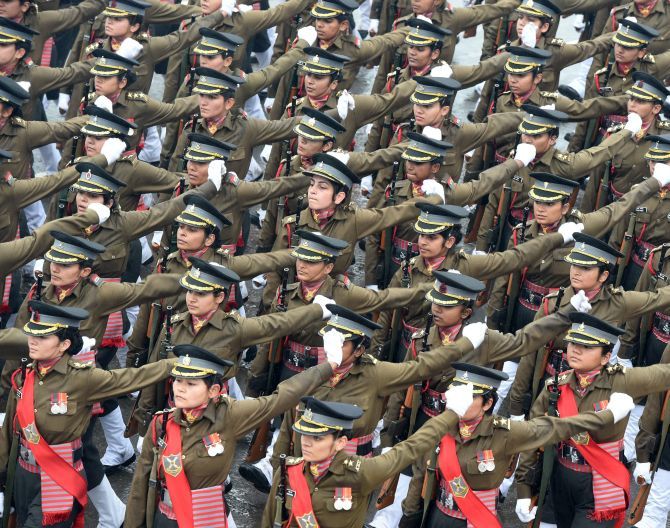Courts cannot run the affairs of the Army, the Supreme Court observed on Friday while hearing a petition filed by a woman colonel who was given the charge of a company of soldiers which is ordinarily commanded by a major, two ranks her junior.

A bench headed by Chief Justice D Y Chandrachud was hearing three matters -- two pertaining to the women officers of the Army and one of the Navy -- in which several grievances have been raised including about promotions.
"We now can't run the affairs of the Army," the bench, also comprising Justices J B Pardiwala and Manoj Misra, told senior advocate Meenakshi Arora, appearing for the petitioners, when she raised the issue of the woman colonel having been given the charge of a company which is ordinarily led by a major rank officer.
"We interfere in those cases on issues of principles," it observed, adding, "Surely, we can't start running the command structure of the Army."
She said it was a case where the woman officer has been given permanent commission and she is a colonel in the Army. Arora said it amounts to "gross humiliation" of the woman officer who is now a colonel.
"Ordinarily, a colonel has to be put in a command post which will have a certain number of JCOs (junior commissioned officers), officers and others under them. Now people who are junior to me have been given units in those commands," she said.
"You have heard the grievance now," the bench told Attorney General R Venkataramani.
The apex court, which posted the matter for further hearing on September 27, said there are issues which can surely be sorted out by the authorities themselves.
The bench asked the petitioners to circulate a note, not exceeding two pages, setting out the grievances raised by them.
It said the respondent authorities will be at liberty to file their responses on the issues raised.
The bench clarified the pendency of these proceedings will not preclude the Army and Navy authorities from looking into the grievances raised by the petitioners and resolve them.
In a landmark verdict on February 17, 2020, the top court had directed that women officers in the Army be granted permanent commission, rejecting the Centre's stand on their "physiological limitations" as being based on "sex stereotypes" and "gender discrimination against women".
The apex court had directed that within three months all serving Short Service Commission (SSC) women officers have to be considered for permanent commission irrespective of them having completed 14 years or, as the case may be, 20 years of service.
Later, in another major verdict on March 17, 2020, the top court had paved the way for granting permanent commission to women officers in Indian Navy, saying a level playing field ensures that women have the opportunity to overcome "histories of discrimination.











 © 2025
© 2025